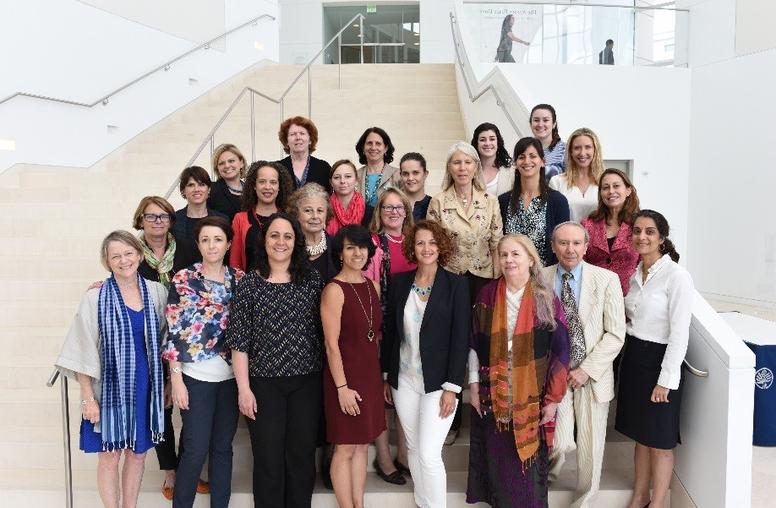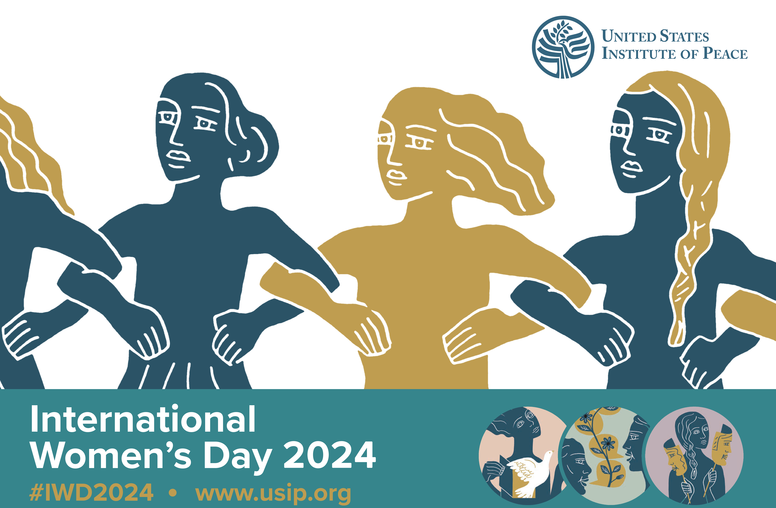 Gender
Gender
USIP's Work on Gender
Violent conflict and extremism have different impacts on men and women, and understanding those distinctive effects is critical for designing effective peacebuilding approaches and ensuring greater gender equality and protection for women and girls. Over the past two decades, international organizations and the U.S. government have increasingly recognized the importance of gender equality in creating enduring, peaceful societies. The U.S. Institute of Peace advances scholarship, carries out programs on the ground, and informs policy on women, peace and security. USIP works with academics, the military, peacekeepers, diplomats and practitioners to advance women’s participation in decision-making, promote peaceful concepts of masculinity and prevent sexual violence in conflict.
Learn more in our fact sheet on USIP's Work on Gender.
Featured Publications

La transition en Haïti ne peut réussir sans le leadership des femmes
Malgré l’instabilité politique et les bouleversements sociaux les plus graves de son histoire au cours de la dernière décennie, Haïti a désormais l’occasion d’aller de l’avant. La sélection d’un Premier ministre efficace par un Conseil présidentiel de transition offre au pays une chance de rétablir la sécurité et d’organiser des élections pour la première fois depuis 2016. Mais pour que les progrès soient durables, il faudra un mélange de leadership transitoire et de leadership transformationnel. Et cela signifie mobiliser et respecter le rôle essentiel des femmes, qui sont actuellement sous-représentées à tous les niveaux de gouvernement et d’influence.

Haiti’s Transition Can’t Succeed Without Women’s Leadership
Despite facing some of the worst political instability and social upheaval in its history over the last decade, Haiti now has an opportunity to move forward. The selection of an effective prime minister by a Transitional Presidential Council offers the country a chance to restore security and hold elections for the first time since 2016. But for any progress to last, there will need to be a mix of transitional and transformational leadership. And that means mobilizing and respecting the essential role of women, who are currently underrepresented at all levels of government and influence.

Religious Leaders, Civil Society Oppose Taliban’s Vice and Virtue Law
The Taliban’s new vice and virtue law, which places sweeping restrictions on women’s dress, mobility and public presence, is facing pushback from Afghan religious scholars, civil society, the wider Muslim community and even the Taliban themselves.
Current Projects

Border Security Training Program
USIP’s Border Security Training Program trains police officers from Kenya’s Border Police Unit and General Service Unit who serve along the Kenya-Somalia border. The program increases the capacity of Kenyan police to manage conflicts nonviolently and to effectively partner with communities along the Kenya-Somalia border in order to more effectively interdict terrorist suspects and reduce justice-related drivers of violent extremism in Northeast Kenya.

U.S. Civil Society Working Group on Women, Peace & Security (U.S. CSWG)
The U.S. Civil Society Working Group on Women, Peace, and Security (U.S. CSWG) is a non-partisan network of civil society organizations with expertise on the impacts of women in war and their participation in peacebuilding. Established in 2010, the working group is an engaged coalition to promote the effective implementation of the U.S. National Action Plan on Women, Peace and Security.

International Women's Day
Celebrated annually on March 8, International Women’s Day engages citizens from all corners of the globe to recognize how far women have come in society—and how much more needs to be done.